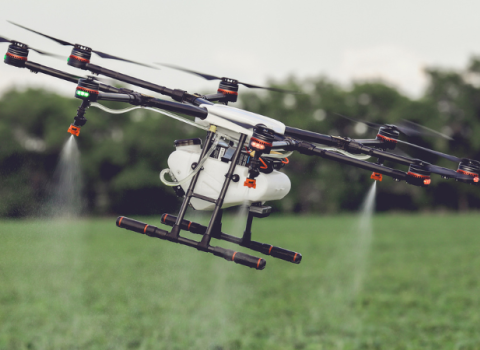Universities are increasingly looking at other ways of exploiting academic assets, beyond the traditional focus on patenting

While patents remain an important part of the technology transfer landscape, other options are increasingly being explored to extract value from academic knowledge. This is embracing the social sciences, arts and humanities, and includes devising processes to automate high-volume licensing of lower value assets such as software, models and designs.
Providing tools to support this effort is the goal of IMPAC3T-IP, a project that has just kicked off with funding by Horizon Europe, which is also looking at assisting knowledge transfer in crisis situations, and where knowledge is generated through in collaboration with civil society and other groups.
“We come from a time when valorisation of knowledge was mainly about patents, but now we are embracing a broader vision of intellectual assets,” said Andrea Di Anselmo, coordinator of the project and president of META Group, an Italian company specialising in knowledge transfer. “IMPAC3T-IP is about those intellectual assets and how to extract value from them in times of change.”
Exploiting these assets has put a new emphasis on copyright. Already important in Europe for the protection of software, it is increasingly being used in other contexts.
“With non-exclusive copyright licensing there is an opportunity to have a bigger impact, and to connect with more academics within the university,” said Jose Fernandez, the chief executive of e-lucid, a start-up from University College London (UCL) with a digital platform for licensing academic intellectual property.
The project that grew into e-lucid began in 2010 when UCL Business, the university’s technology commercialisation company, decided to set up a digital storefront to offer licences on some of the software generated by academics at the university. It had looked at conventional e-commerce platforms but found them poorly adapted to this kind of licensing, where it is often necessary to have different processes depending on whether an academic or a commercial license is being offered.
When other UK universities started to show an interest in this approach, UCL Business offered the e-lucid system as a white label product. Then, in 2023, it spun-out e-lucid, which now has customers at universities and government research labs in the UK, US, Ireland and Australia.
Mobilising academic assets
The software e-lucid licenses now ranges from molecular and materials modelling tools, to topographic mapping and risk assessment tools, to educational games. These are licensed both as packaged software and as software as a service.
“You can release the software, protected by copyright, in a controlled manner, and see how the market reacts,” said Ed Maughfling, head of business development at the company. “You might make some money and you get feedback, all without the academic or the technology transfer office incurring extra expenditure.”
If the software then sells well, options for further commercialisation or perhaps creating a spin-out company around it can be explored. There is also scope for university spin-outs to use e-lucid to distribute their products, either on their own account or by piggybacking their university’s e-lucid storefront.
Beyond software, e-lucid is being used to sell research consuamles, such as cell lines, proteins and antibodies, and other copyrighted academic materials such as clinical questionnaires, course modules and other teaching materials.
Universities are also using e-lucid to license media relating to their cultural heritage, notably the collections held by museums and galleries associated with the institutions. Licensing this kind of material is either neglected by universities, or ties up staff who could be pursuing other, bigger opportunities.
“Technology transfer offices are expanding their understanding of their classical licensing activities and approaching more departments in their universities, to talk about how they can support the academics and creators in these departments, and help make an impact in the world,” said Fernandez.
E-lucid is one of the partners in IMPAC3T-IP, along with University College Dublin, the University of Allicante, and technology transfer organisations Atrineo and Areopa. One of the project’s three strands will look at licensing options beyond the classical emphasis on patents.
“We are looking at things that are much more covered by copyright, and making it easier for outside companies, including start-ups, to get hold of that knowledge and use it,” said Lisa Cowey, technical coordinator of the project.
For the researchers involved there is income, but more importantly this represents a way of demonstrating that the knowledge generated by their research is being used and having an impact.
Crisis and co-creation
The second strand of IMPAC3T-IP will look at crisis licensing, where technology needs to be made available quickly, but still within a framework of rights and permissions.
For example, e-lucid was used during the COVID pandemic to distribute blueprints for the UCL-Ventura breathing aid. The device was reverse engineered for rapid manufacture by engineers from UCL and Mercedes AMG High Performance Powertrains. Nearly 2,000 licenses were issued for the device in the first month.
Even when IP is released like this for essentially humanitarian reasons, it is important that this takes place within a time-limited framework of rights and permissions. Licensing allows the intellectual property rights holders to keep track of who has used the technology and follow any uses outside the crisis situation.
“After the free-to-use period lapses, it is perfectly reasonable for whoever has created the IP to commercialise it, or disseminate it under a different set of terms,” said Maughfling. A license also clearly defines any liability for the use of the technology, an important consideration when it comes to medical devices.
Thinking about how this kind of knowledge transfer can be carried out effectively is now of interest in discussions about preparedness and challenging situations short of a crisis. For example, the same kind of licensing is useful in getting vaccines to developing countries that cannot afford to pay full price.
This problem has already been addressed to a large degree by organisations such as the Gates Foundation, the Wellcome Trust, and the Innovative Medicines Initiative. “They all aim to make the results of the research they sponsor more widely available, but the way they do that, and the conditions under which these results are licensed, are not that well known,” Cowey said.
The goal is for some of these models to be incorporated in the IMPAC3T-IP tool kit. “We hope that this will then propagate many other countries, and many other charities,” Cowey said.
These approaches may also encourage more companies to consider free or royalty licensing for technology that they own, but which is not core to their business. “There may be quite a lot of reputational advantage in doing that, but many companies don’t know how,” Cowey said. “So, we hope to have tools that will help people release some of their knowledge.”
The third strand of IMPAC3T-IP tackles licensing from large research projects, which may involve civil society groups, policymakers and other partners with different expectations of how the knowledge generated will be used.
“Trust is an issue that comes up constantly in such projects,” Cowey said. “So, while there is a trend to involve more people in research, it is also very complicated to make them feel comfortable about working together and openly sharing knowledge.”
And if a project is successful, there may be questions over who profits from the resulting knowledge. “We hope to have some tools that will help people feel more comfortable in those projects,” Cowey said.
This may also benefit start-ups working with stakeholders in order to develop their products and services. “Small companies might struggle to engage in these situations without a legal department, so this approach to managing knowledge assets may also be relevant to them,” she said
Context
Across all three strands, the project aims to produce case studies and resources such as legal templates and decision trees that will help people negotiate these new licensing situations.
Talking with policy makers and research charities will also be important, since they can shape the environment for knowledge transfer. For example, one nation may decide to make compulsory licensing possible in a crisis, but the people who need to use the technology may be in a different country, and a different jurisdiction.
“It is quite difficult to do compulsory free licensing across borders at the moment,” Cowey said. “Some countries have done it, but others are not sure how. But policymakers are the people who can legislate so that it is possible when it is needed.”
Elsewhere in the Ecosystem…
- Connected, a Portuguese start-up developing narrowband connectivity from space for off-grid internet-of-things applications, has raised €2 million in seed funding. The money will help the company expand its team and technology development, with a view to conducting its first tests in space by the end of 2024. The round was co-led by Shilling VC, Iberis Capital and FundBox.
- A four-year project to train professionals in the field of emotion artificial intelligence has been launched by the European Institute of Innovation and Technology’s digital community, EIT Digital, and 12 other European education, research and technology organisations. EMAI4EU's flagship programme will be a two-year master’s programme in emotion AI, combining theory and practice through exercises, workshops and collaborative projects among eight universities in six European countries.
- Amply Discovery, a 2021 spin-out from Queen’s University Belfast, has raised £1.4 million in grant funding to advance its AI drug discovery platform. One grant, from Innovate UK and Innosuisse, is focused on RNAi therapies in cancer, and the other, from Innovate UK alone, will look at treatments for multi-drug resistant tuberculosis. The company is now aiming for a £1.4 million seed funding round during 2024.
- Organisers are sought for the first six defence hackathons to run under the European Union Defence Innovation Scheme. The aim is to stimulate defence innovation and attract new talent to the defence sector. The theme of this first edition is digital in defence. Bids are required by 11 March. The events will take place from 31 May to 2 June





 A unique international forum for public research organisations and companies to connect their external engagement with strategic interests around their R&D system.
A unique international forum for public research organisations and companies to connect their external engagement with strategic interests around their R&D system.